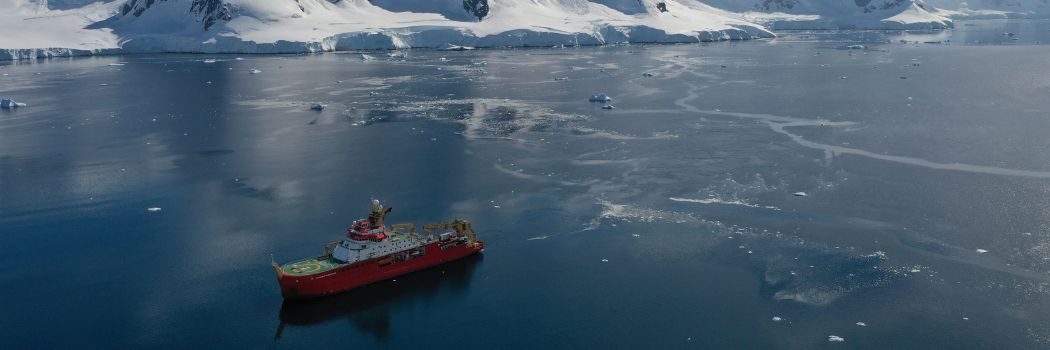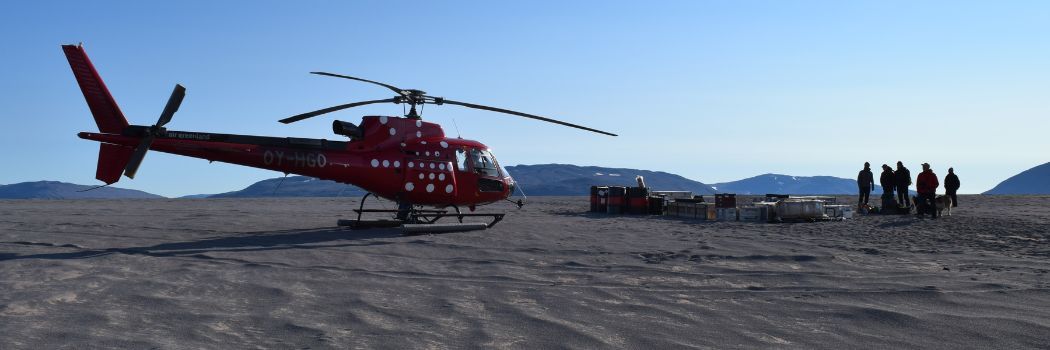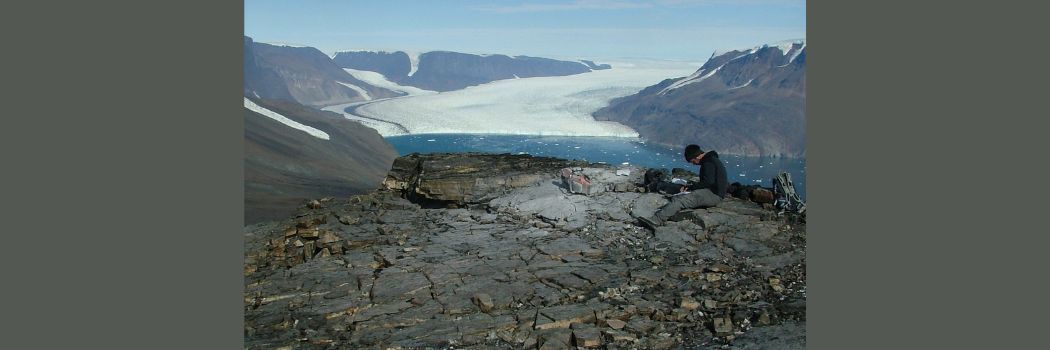
Our geographers are setting off on a science expedition to Greenland to advance our understanding of the region's rapidly decaying ice sheet.
The KANG-GLAC project will look at the ice sheet's impacts on ocean and global climate systems.
An international team of scientists, co-led by Durham, will travel to Greenland aboard the UK's polar research vessel, the RRS Sir David Attenborough – which is making its first science expedition to the Arctic.
They aim to see what the intricate processes driving these changes are by studying what is happening now and by also looking back to warm climatic periods in the past.
Changing behaviour of Greenland Ice Sheet
Durham's geographers will take sediment cores from the sea bed.
They will look at the nature of these sediments and the composition of tiny single-celled organisms, called foraminifera, to chart Greenland's past warm and cold periods.
The team will also use a helicopter for onshore sampling of landforms to date how the Greenland Ice Sheet has thinned through time.
That information will be fed into computer models to tell us about the changing behaviour of the ice sheet over the last 11,000 to 12,000 years – a period known as the Holocene.
This includes a time when summer temperatures in Greenland were 3-5°C warmer than today.
This will help scientists to understand future changes to the ice sheet, the ocean and marine ecosystems caused by climate change.
Understanding the Holocene record of Greenland Ice Sheet change and the role of the ocean thereon is crucial for placing current observations of ice and ocean change into their longer-term context and for underpinning predictions of future change. The range of tools to be deployed from the RRS Sir David Attenborough during the KANG-GLAC cruise provides an unprecedented opportunity to assess this change over the last 11,700 years.
.jpg)
An international team of scientists, co-led by Durham, will travel to Greenland aboard the RRS Sir David Attenborough, which is making its first science expedition to the Arctic.

Durham's geographers will take sediment cores from the sea bed. They will look at the nature of these sediments to chart Greenland's past warm and cold periods.

The team will also use a helicopter to land on the ice sheet and take onshore sampling of landforms to date how the Greenland Ice Sheet has thinned through time.

The research will help scientists to understand future changes to the ice sheet, the ocean and marine ecosystems caused by climate change.
Glacier, ocean and ecosystem change
KANG-GLAC is a three-and-a-half year project and will generate records of glacier, ocean, and ecosystem change for the Holocene era at key sites close to Kangerlussuaq Fjord in South East Greenland.
The team is made up of 40 researchers – including oceanographers, biologists and geologists – who will collectively use a range of instruments to retrieve samples from rocks on land, the ocean, and the seafloor to gain a comprehensive picture of this region and its current and potential future response to environmental change.






